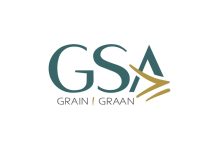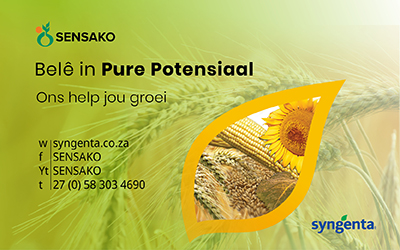
CEO, Grain SA
As the second most important food source in South Africa, local wheat production plays an essential role in guaranteeing food security in our country. The expected population growth means that we will have to feed significantly more people in the future. Therefore, the continued viability and profitability of the local wheat industry is all-important for maintaining food availability, affordability, and nutritional wellbeing. However, a lot of uncertainty currently exists among wheat producers who must show their mettle on a challenging and uneven playing field.
The profitability of wheat production has been under pressure for some time and producers often just break even. They are expected to compete with often lower quality but heavily subsidised wheat imports at a low price, especially from Russia, undermining local production’s financial viability. Furthermore, the expectation is that the 2023/2024 season will conclude with a large ending stock due to the greater number of imports and a consequently greater supply for the new marketing season.
However, Russia recently announced that they want to implement a minimum price to prevent other grain buyers from reselling their “cheap” wheat to wheat-importing countries. This may help to support the international wheat price, which is unsustainably low.
Besides a serious lack of subsidies, local producers also face challenges that their international counterparts are buffered against thanks to government support. Here we can mention, among others, our dilapidated transport system and water infrastructure, high labour costs, unfavourable labour legislation, lack of risk support, crime, and an increasing cost squeeze.
This uncertainty forces producers to consider more seriously spreading risk and diversifying as well as their options not to plant, since the margins of wheat are shrinking annually. For these reasons, Grain SA, in cooperation with the industry, started to implement a turnaround strategy for the local wheat industry a few years ago. This includes an import tariff for wheat to protect local producers from high levels of subsidies in major wheat-producing countries.
However, the current hold-up in the announcement of the import tariff for July and the delay in the adjustment of the base price are causing further uncertainty in the market, putting even more pressure on the financial position of wheat producers. Grain SA made a strong statement in this regard towards those responsible and is working unceasingly to solve these bottlenecks together with the industry and government departments.
With each production season, a great responsibility rests on the shoulders of grain producers to make the right decisions in an agricultural environment full of uncertainties. It is crucial that grain producers must be able to rely on an effectively managed regulatory environment. Grain SA met with the Minister of Agriculture regarding this issue to stress the urgency of the matter.
When the state drags its feet in meeting its responsibility towards producers of staple food, it has a negative and far-reaching ripple effect. This increases dependence on international trade and foreign exchange, harming autonomy, jobs, and decision-making power. The African continent has many examples of countries that have fallen into this trap to the detriment of their internal stability.
Wheat producers also continue to suffer from an increasing location differential. However, Grain SA has come a long way with negotiations to establish a fairer system for grain producers. In this regard, there is a light at the end of the tunnel. The trial run of a new location differential currently being tested on soybeans – which is being done with the full cooperation and guidance of the JSE – is an important step towards a fairer system. If successful, it will be put to the test for other commodities as well, such as wheat.
Ministerial approval has been obtained for statutory levies on wheat, barley, and oats with effect from 1 October 2024. These levies will be managed by the South African Winter Cereal Industry Agency (SAWCIA) for a period of four years with the aim of promoting much-needed research and funding the dissemination of information. Grain SA wishes to thank producers who were willing to pay voluntary levies in the interim.
Regarding the breeding and technology levy (SACTA levy), the development and availability of improved high-potential wheat cultivars that still meet quality standards are essential for improving productivity and international competitiveness. These fruits will be reaped in the long term.
As an organisation, Grain SA is committed to working tirelessly to help wheat producers succeed and to restore wheat as a resilient and profitable agricultural commodity.












